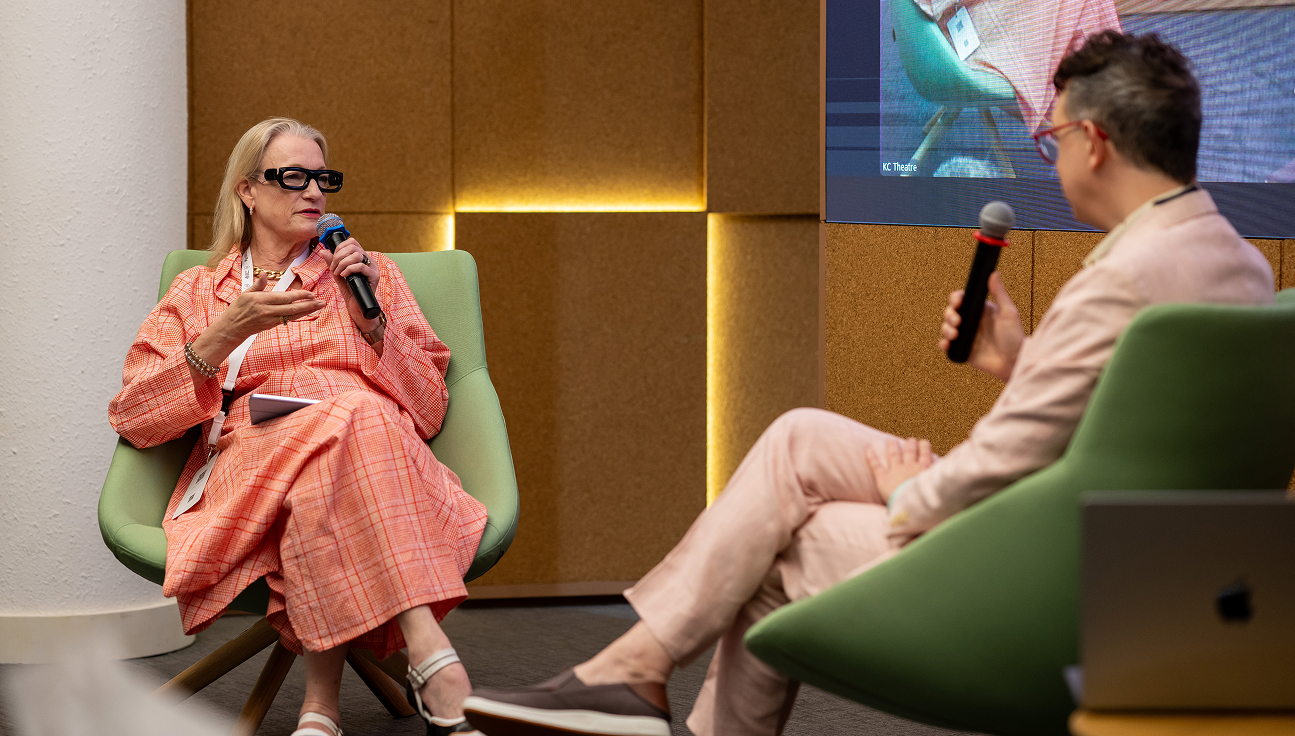AI for all: Unlocking an inclusive future with technology
Wednesday, December 11, 2024

From education to healthcare, and employment to finance, AI can be used in various ways to improve accessibility and inclusion for underrepresented people and communities.
This point was well made at the Special Olympics Global Center Summit in Abu Dhabi, which brought together more than 300 leading advocates for inclusion from around the world to exchange insights and explore best practices for promoting social inclusion for people with intellectual disabilities through sports, youth leadership, and comprehensive school engagement.
During a panel discussion on ‘technology as a catalyst for inclusive learning’, Elizabeth Churchill, Department Chair and Professor of Human-Computer Interaction at Mohamed bin Zayed University of Artificial Intelligence (MBZUAI) emphasized AI’s role in inclusion.
“AI will increasingly play a crucial role in inclusive technology design. And learning technologies will be at the center, offering ways to personalize to individual learner needs,” Churchill said after the event, as she explained how AI, in small ways, can help us rethink how education works for children of determination – specifically those with cognitive differences.
“One example is that we have seen AI being used to tailor regimens or activities based on feedback from the children themselves, based on an understanding that there are many different learning styles,” she continued.
“Another is that AI can be used to detect emotions by assessing facial expressions, body movements, and so on. This is important in giving teachers more information and helping them understand cues about whether the specific learning methods are working for each child, or even whether they are in the right frame of mind to learn at that particular moment.
“A lot of it comes down to personalization of material, the way it is presented, the support teachers are given, understanding cognitive patterns, and how to look at such patterns over time. This helps to give a tailored model for each learner.”
Coordinated by Reaching the Last Mile, a portfolio of global health programs driven by the philanthropy of His Highness Sheikh Mohamed bin Zayed Al Nahyan, President of the UAE, the panel also featured Lauren Phillips, director of the QudraTech program at Inception/G42, and Martin McKay, chairman of TextHelp. The discussion was moderated by Esther Kuisch, director Latin America and the Caribbean, UNESCO.
“I am so honored to have been invited to this panel and this event,” added Churchill “Educators and advocates who have been thinking about how to support young people of determination came together, all interested in knowing more about how AI can be focused on the needs of the students they support. We had so many rich conversations rooted in experience, and so many design ideas were flowing.”
Making a positive impact
MBZUAI has a strong track-record of faculty and student-led research focused on inclusion; both for people of determination and other communities.
Ekaterina Kochmar, Assistant Professor of Natural Language Processing (NLP) at MBZUAI, and postdoctoral researcher Kaushal Kumar Maurya, for example, won a Google Academic Research Award for ‘making education equitable, accessible and effective using AI’.
Hisham Cholakkal, Assistant Professor of Computer Vision at MBZUAI, led a team that developed BiMediX2, a bilingual healthcare multimodal model that was named by Meta as one of the winners of its inaugural Llama Impact Innovation Awards. The model was praised for its potential to solve healthcare accessibility challenges across the Middle East, Africa, and beyond.
Elsewhere, Sami Haddadin, Vice President for Research at MBZUAI, has developed intelligent prosthetics that have the potential to change the lives of amputees and those who are limb-different. And the University has improved linguistic inclusion and accessibility by helping to develop the world’s highest quality Arabic large language model (LLM), Jais, as well as Nanda, the world’s most advanced open-source Hindi LLM – both developed in collaboration with Inception.
On a mission to do good
These initiatives and research projects reinforce MBZUAI’s mission to use AI as a force for good, as well as its inclusive approach to education. For example, almost 40% of MBZUAI students are women, outdoing the global average for girls and women in STEM education.
As head of the Human-Computer Interaction department, one of Churchill’s roles is to help ensure inclusivity is ingrained in students’ research; putting humans of all types into the process of AI development.
“There are two things that are top of mind for me,” she said about her takeaways from the summit. “The first, learning from people of determination is central to learning about everyone and their technology needs. And second, the philosophy I am truly behind is inclusive and participatory design, aptly stated in the slogan ‘nothing about us without us’.
“MBZUAI is deeply committed to inclusive design and understanding the whole space of how humans interact with computation of all kinds, and – as our name suggests – AI in particular. What better place to partner and learn from young people of determination? What better inspiration could there be?”
- healthcare ,
- education ,
- Human–computer interaction ,
- accessibility ,
- inclusion ,
- summit ,
- impact ,
Related
Designing the human side of AI
MBZUAI’s inaugural HCI Symposium explored how people will live and work alongside AI, and how to ensure.....
Read MoreAI and the silver screen: how cinema has imagined intelligent machines
Movies have given audiences countless visions of how artificial intelligence might affect our lives. Here are some.....
- cinema ,
- art ,
- fiction ,
- science fiction ,
- artificial intelligence ,
- AI ,
MBZUAI Opens Applications for First Ph.D. Cohort in Human-Computer Interaction
Mohamed bin Zayed University of Artificial Intelligence (MBZUAI) has opened applications for its first Ph.D. cohort in.....
Read More

